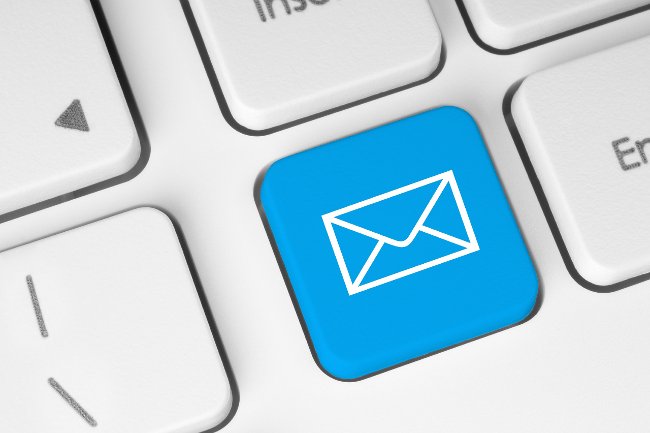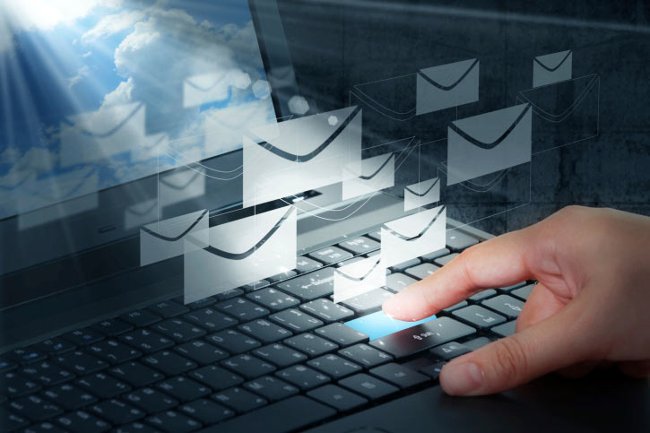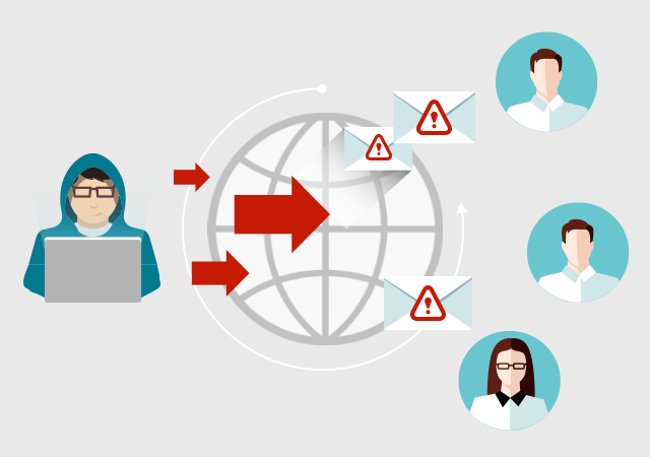29 ways to end popular English emails and their meanings
- How to maximize income if you are a Freelancer?
- Take 15 minutes to learn 7 techniques that can change your life!
- 5 valuable tips on money for new graduates
Writing an email is not difficult but the end of the message can sometimes make you feel headache.
Is it normal to use " cheers "? Is it " cheeky " too? Can we show too much intimacy? Do " Sincerely " be obsolete, boring or overly formal? Using " Best " seems to be wrong - unless it's too safe?
Anyone who has ever measured the use between " best ", " all best " with " all the best " knows that no email connection is good, especially in case of writing important messages. If there is an opening letter, then of course, there must be a letter, avoiding an abrupt, dead end .
Not to mention demeanor, the letter also carries the actual function. It helps " identify sincerity in email content ". It is also an opportunity to identify or re-identify the recipients' relationship with the letter writer. Often times you still see the letter that people wrote " Love " and now use " best ", the relationship between the two people must be problematic.
Here are 29 common email ending ways and the meaning of each way so you can know when to use, when to avoid and how to use it when you're not sure. Invite you to consult!

1. Thanks (Thanks)
The word " Thanks " can be offensive if at the end of the delivery letter, because it shows false gratitude. In return, you can add the following exclamation point to true expression.
2. Thanks again (Thanks again)
By using the word " Thanks again ", it seems even more annoying than " Thanks " in the boss's letter to the staff.
3. Thanks! (Thank you!)
Using " Thanks " expresses thanks, it really makes sense when you really want to thank someone for the real thing they did for you. When using " Thanks! ", Express deep gratitude, happiness and sincerity.
4. Thanks so much (Thanks very much)
If you want to show your gratitude, then using " Thanks so much " is not wrong. However, you can use the " Thanks " word to express that meaning as well.
5. Best (Everything good)
" Best " is the safest, harmless and usable way of making messages at all times. So, when you wonder what words to use, use " Best ".
6. All best (Everything is best)
In general, the end of a long letter is said to be more polite. Therefore, when using " All best " is considered a bit more formal than " Best ". However, there are some who say that " All best " is a bit cheesy: whether you really give all the best ( All best ), or just some? But this is still a relatively safe choice.
7. Best wishes (Best wishes)
This is a more formal way of ending " best " and " all best ", suitable for the first transaction. Although some people find it difficult to see these two words, this is a relatively low-risk option.

8. Sincerely
You should only use the word "Sincerely" in your cover letter because it is very formal. Also, it is appropriate to use the introduction with " Dear ".
9. Looking forward (Expected)
"Looking forward" is used in case you will meet that person again in the near future.
10. Speak with you soon (Will talk to you soon)
Only when you really want to do so, use " Speak with you soon ", but if not, don't use this sentence. Because this is not a good choice.
11. Talk soon (Talk soon)
" Talk soon " more intimate and more "S peak with you soon ". If you really want to talk, then it is okay, and if you don't really intend to talk, you will show that you are dishonest.
12. More soon (more information will be available soon)
" More soon " represents a commitment, a real promise. Use this phrase carefully!

13. xx
If it is a commercial email, the use of " xx " is completely unprofessional, but if it is a long-term partner, it is acceptable if the two understand each other and use it to respond if the other uses first. . For example, there are cases where the writer uses " Name and x " ( Aliza x ) in intimate letters but of course the two must know each other first.
14. xoxo
The " xoxo " sign is hugs, not kisses and only used in correspondence sent by friends. " Xx " can be used at work, but " xoxo " should only be used by close and really close friends.
15. Warmly
" Warmly " is less formal than "S incerely " but more formal than " Best ". However, women often do not like the word " warmly ".
16. Warmest
The word " Warmest " seems to be more suitable for teenagers. Be careful when using it!
17. Cheers
If you're really an English, then using this word is fine, otherwise don't use it.
18. [your name]
The way to write your name to end the email is that most people think it is " cold " and " sudden" .

19. [Write only the first letter of the name] ("W")
Use only the first letter of the name when the recipient knows you, otherwise don't let them guess if "W" is " Will " or " William "
20. [do not write anything]
If a series of emails goes back and forth in a short time to exchange information continuously, there is no need to open the message and the letter. In fact, both senders and recipients automatically remove this because of the time issue, need to focus on the main exchange content, except for the first email.
21. Yours
" Yours " is not as formal as " Sincerely " but some people think that this is a formal way even if someone really hates using this word. They argue that it is ambiguous about the meaning ( what is your? ) And easy to misunderstand between two new heterosexuals.
22. Yours truly
Some people think this is an upgraded version of " Yours " but there are also people who see how to finish the letter with the words " Yours truly " this is " false ".
23. Yours faithfully
For Americans, the way of ending " Yours faithfully " sounds like a marriage proposal or vow. However, this is the way the British still use in the opening letters " Dear Sir / Madam " but there are some who believe that using this word is " insensitive ".

24. Respectfully (Respectful)
The word " Respectfully " at the end of the letter is considered too formal, suitable for writing to the President or Queen . If emailing government officials, you can use " respectfully yours ".
25. Regards (Best regards)
" Regards " is a formal but slightly short letter. " Best regards " and " Thanks & Best regards " are more commonly used because it seems to be formal, so write a little longer. However, you should not abbreviate to " Rgds ", because it makes the reader think that you are too busy, not to write a word for the message seriously.
26. Take care
The two words " Take care " show concern about health and peace. If the two sides are close or know each other's status, it's okay, otherwise, using it can cause the recipient to feel insecure as if " you know I'm in danger? ".
27. Looking forward to hearing from you
If you are relying on others, the " Looking forward to hearing from you " message will put pressure on that person. At the same time, this sentence also brought the writer into the passive position by waiting for the move of the enemy.
28. VB
VB is an acronym for " very best ". When using these two words, it is simple and friendly.
29. As ever (As always)
This is one of the favorite ways of ending many people's messages for repetitive addresses. That: " Whatever you are, you are like that and nothing has changed ".
See more: If you think hard is an essential element to success, you're wrong!
Having fun!